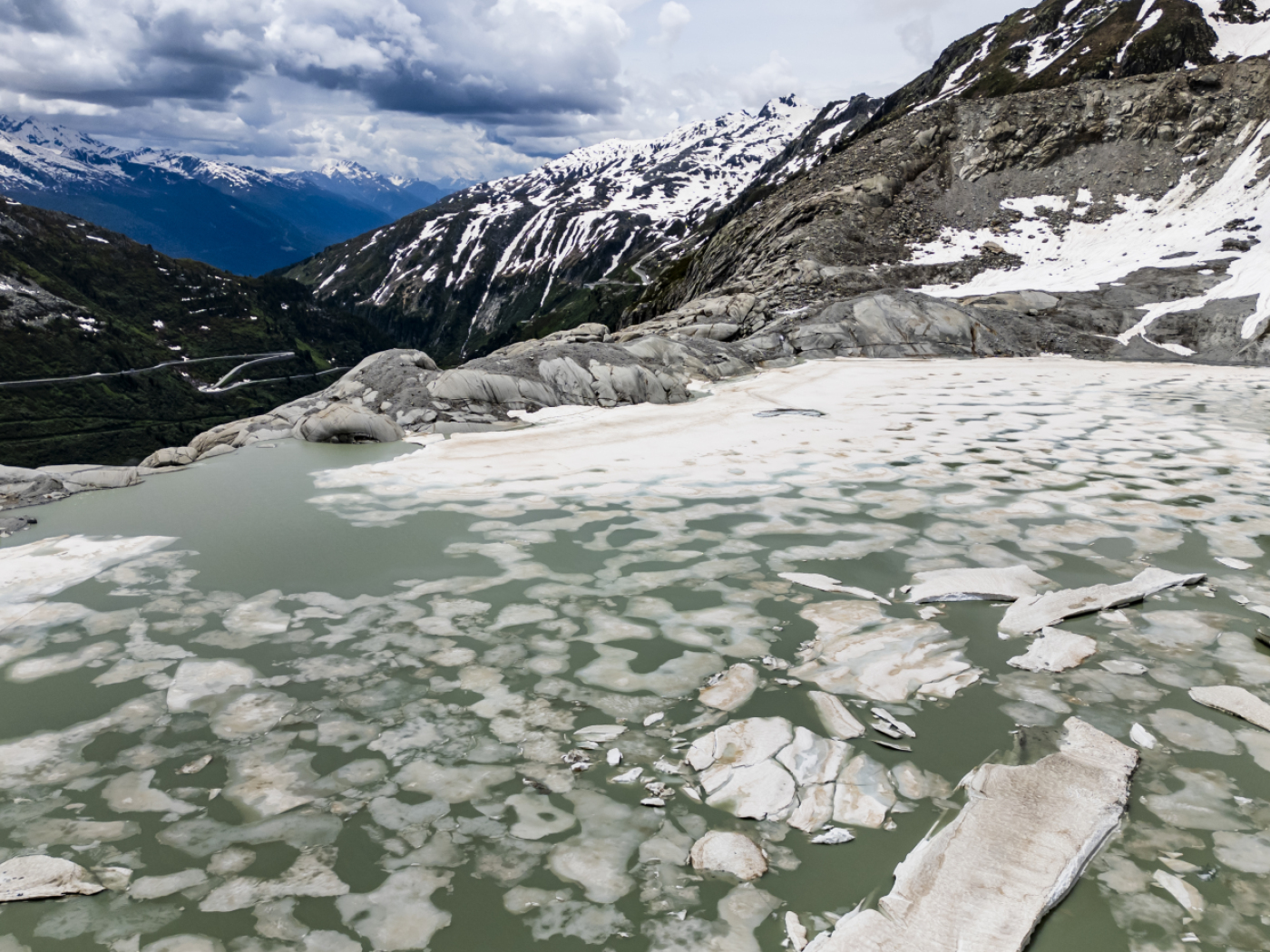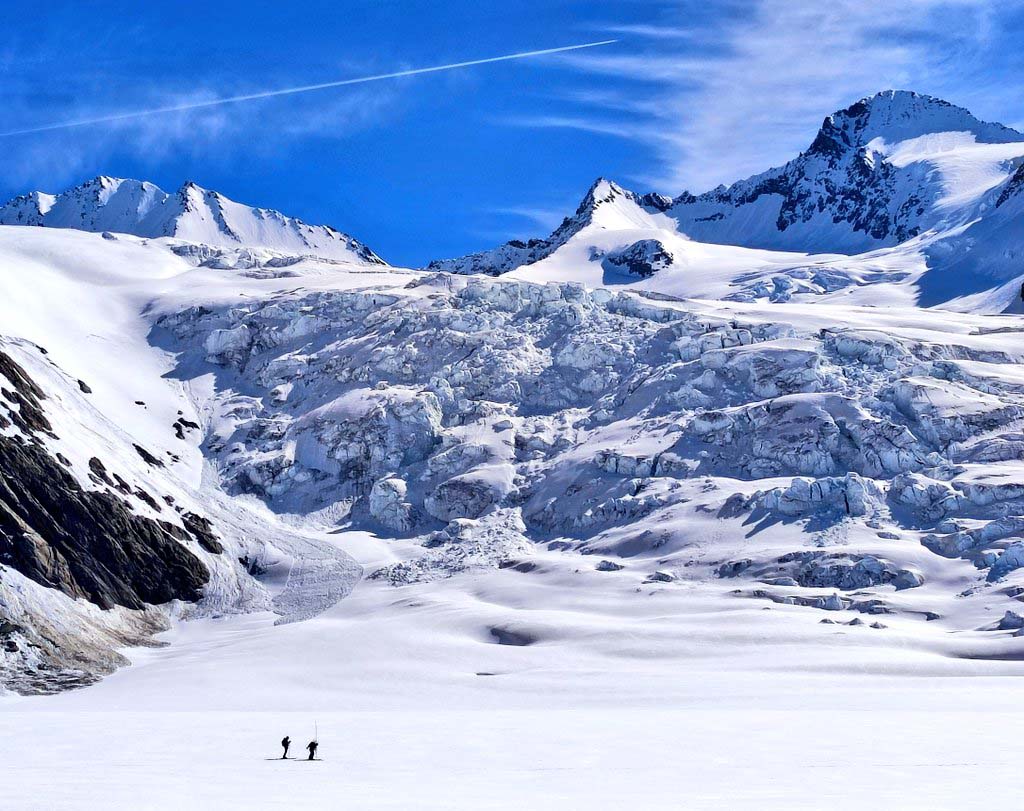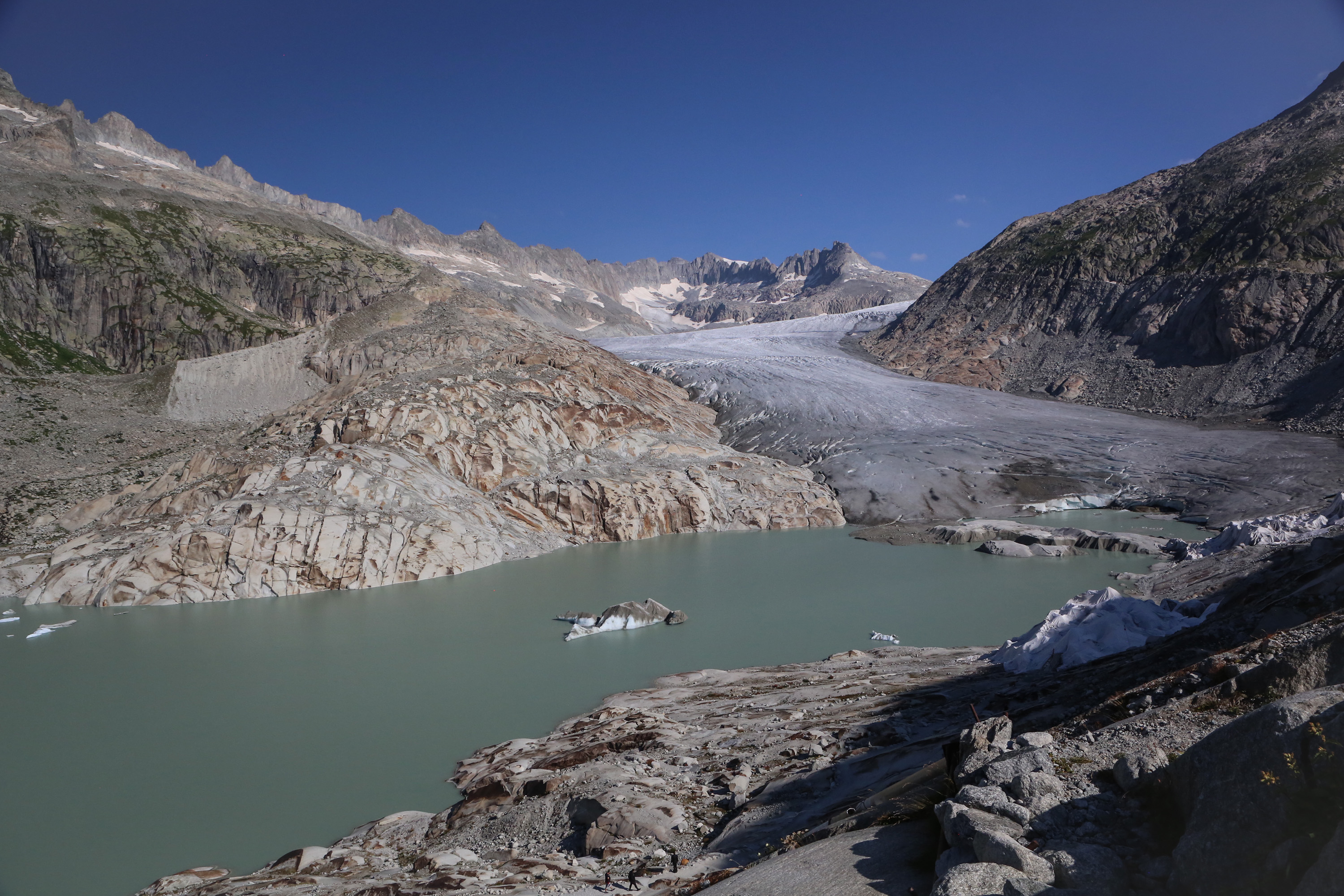Zurich study finds 5% of the world’s glaciers have already melted

Five percent of the world’s glaciers have already melted according to a new study by researchers in Zurich and published in the journal Nature. Between 2000 and 2023, an average of 273 billion tonnes of ice per year was lost.
+ Get the most important news from Switzerland in your inbox
“The amount of ice melting from glaciers each year is equivalent to the water consumption of the entire world population in 30 years,” study leader Michael Zemp of the University of Zurich (UZH) told the Keystone-ATS news agency.
Glacier retreat has accelerated rapidly. Since 2012, an average of 36% more ice has melted per year than in the first half of the period under review.

More
Swiss glaciers remain under threat despite huge winter snowfall
To carry out the study, the World Glacier Monitoring Service, based at UZH, collected, combined and analysed glacier retreat data from satellites and measurements on more than 10,000 glaciers worldwide.
Although the fact that glaciers are melting is not news per se, according to Zemp these new studies are important to know what damage and changes we can expect.
Sea levels are rising
Overall, melting glaciers have caused sea levels to rise by 18 millimetres. “It’s a small increase, but it has a huge impact,” says Zemp. “For every millimetre of sea level rise, up to 300,000 more people are affected by flooding once a year.”
Glaciers are thus the second leading cause of sea level rise after ocean warming. Melting of the Greenland ice sheet, the Antarctic ice sheet and water storage on land have so far had minor effects.
European glaciers particularly affected
Particularly affected are glaciers in the European Alps, which have already lost 39% of their mass, according to the study. The figure is in line with the figures for Swiss glaciers. These have in fact lost about 38% of their volume between 2000 and 2024, according to data from the Swiss glacier monitoring network Glamos.
Glaciers in the Caucasus (-35%), New Zealand (-29%), North Asia (-23%), Western Canada and the United States (-23%) and tropical glaciers (-20%) also suffered large losses.
Because the amount of ice is relatively low in Switzerland, European glaciers have contributed relatively little to sea level rise, Zemp explains. They are responsible for about one millimetre of the rise. At 2%, Antarctic islands have lost relatively little ice. However, with their much larger glacial areas, they remain the main cause of sea level rise.
Every tenth of a degree counts
“At this rate, glaciers in the European Alps will not survive the century,” Zemp points out. “The damage has been done,” the researcher says. “Even if we solved the climate problem today, the glaciers would continue to melt.” Since glaciers react to climate warming with a lag, an additional 10-20% of ice can be expected to be lost by 2050.

More
Secrets revealed by melting Swiss glaciers could eat plastic and cure disease
What happens in the second half of the century will depend largely on our actions. Without effective climate protection measures, up to 50% of all glaciers could disappear by 2100. With decisive countermeasures, this volume could be limited to about 25%, Zemp says. “Every tenth of a degree counts,” the researcher points out.
Translated from Italian by DeepL/jdp
This news story has been written and carefully fact-checked by an external editorial team. At SWI swissinfo.ch we select the most relevant news for an international audience and use automatic translation tools such as DeepL to translate it into English. Providing you with automatically translated news gives us the time to write more in-depth articles.
If you want to know more about how we work, have a look here, if you want to learn more about how we use technology, click here, and if you have feedback on this news story please write to english@swissinfo.ch.

In compliance with the JTI standards
More: SWI swissinfo.ch certified by the Journalism Trust Initiative


















You can find an overview of ongoing debates with our journalists here . Please join us!
If you want to start a conversation about a topic raised in this article or want to report factual errors, email us at english@swissinfo.ch.